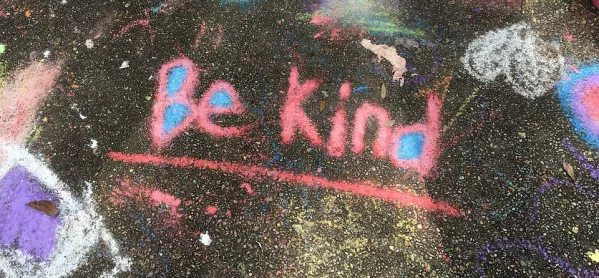As families all over the country grit their collective teeth in preparation for the final run-up to GCSE and A-level season, the increased stress facing our young people plays on many of our minds.
Leading children’s charity NSPCC revealed that the number of referrals by schools in England seeking mental health treatment for pupils has risen by more than a third in the last three years. The mental health crisis – for that is what it is – among children and young people in our schools attracts many column inches in the media, and rightly so.
Mindfulness, school counsellors and resilience courses all have their place, but the most important mental health and wellbeing provision in our schools is neither new, scientific nor medicinal.
It is the power of relationships that makes the biggest difference: friendships with other children and the support of teachers.
Many children and young people suffering acute episodes of mental ill-health need the systematic support of CAMHS and other mental health professionals – though waiting times are often prohibitive. However, while we focus our attention there, we may be forgetting the power of a kind word and the reality that life will always have ups and downs.
These are not to be endured but to be enjoyed as providing some of the colour in life’s rich tapestry.
What matters most in school, pastoral care or academic learning? That is a false dichotomy, and when appointing teachers I always remind myself that children’s response to a new teacher doesn’t hinge on their degree classification or which university they attended: they do not care what they know until they know that they care.
Schools should – and many do – make wellbeing their top priority. I have seen schools become so much more focused and better equipped in this area over my career, which has included headships in both the state and independent sectors.
The amount of staff training, investment, dedicated professional team members and links with social care and medical teams beyond schools is really positive and is improving all the time, despite the funding pressures facing many.
We know that it takes a village to raise a child. In a school environment, that means all of us playing a part, being kind and caring, looking out for each other. As my mother used to say: "A friend in need is a friend indeed", and that is as true in an era of AI and smartphones as it was 40 years ago. The human touch will always be important.
So, as the exam season starts and mental health pressures peak, I remind myself and I ask my fellow school villagers to remember that the systems, professionals and policies matter, especially for those needing the most help. But we mustn’t forget the simple magic of a kind word, a sympathetic ear and, well, being a good friend.
Shaun Fenton is the headteacher of Reigate Grammar School and chair of HMC.



